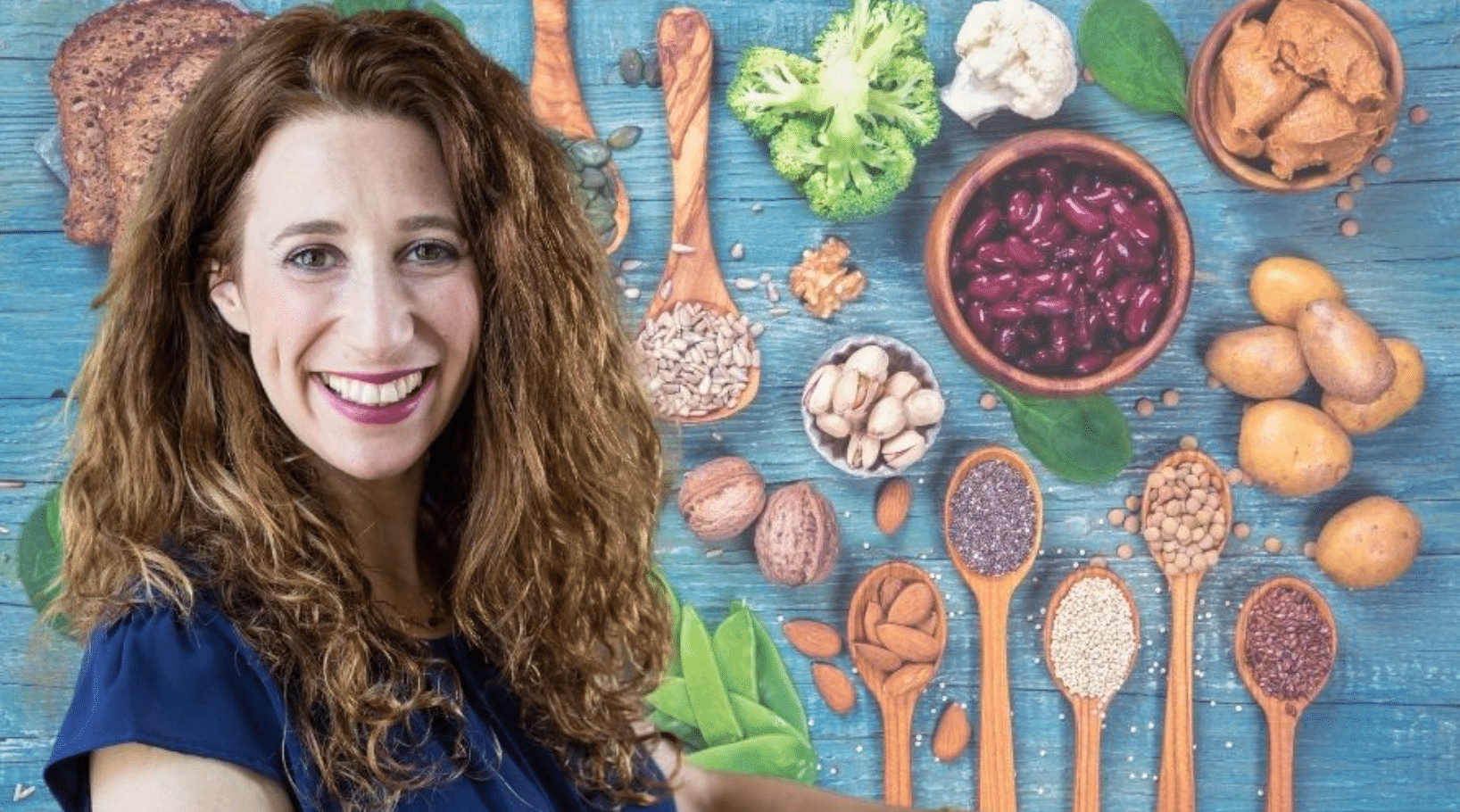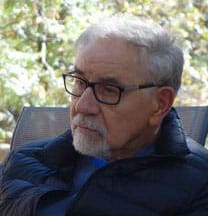 Photo courtesy of AJU.
Photo courtesy of AJU. Trained as a chef and baker at Bishulim, a culinary institute in Tel Aviv, Ori Shavit was, until a decade ago, wholeheartedly a part of the flourishing Israeli food scene, working as writer and restaurant critic for Al HaShulchan (On the Table), a gourmet food magazine. At that time, Shavit’s main guiding principle was that food should taste good. One night, she had dinner with a man who told her he was a vegan.
“My life revolved around food,” Shavit said, “cooking and baking and restaurants, so the idea of saying no to [certain] foods was unbearable. Why should I put aside all these great foods? Everyone knows that meat comes from a dead animal. … But what’s wrong with milk, what’s wrong with eggs? I started to investigate and it was a shock — to understand not just what I was eating but what I was promoting in my writing, how much violence and cruelty is involved in the [meat] industry.”
That was the opening salvo of “Where’s the Beef? Exploring Veganism in Israel & Judaism,” a Zoom event presented Sept. 2 by B’Yachad Together, American Jewish University’s recently formed online service. The discussion with Shavit was moderated by a fellow vegan, Rotem Rozental, chief curator and senior director of Arts and Culture at AJU.
Shavit said that once she became a vegan nine years ago, she not only changed her diet but her life. Case in point: Since then, she’s written a blog called “Vegan Girls Have More Fun.”
During the 70-minute AJU program, Shavit repeatedly talked about the pain and suffering that the consumption of meat causes animals, and it was clear that her passion for veganism is grounded in her fight against the idea that humans have the right to use other species as they please.
“If we look at this question from the point of view of the animal,” Shavit said, “the answer will be clear. No animal wants to be locked down, no animal wants to be separated from her family, no animal wants to be slaughtered, and there’s no way to do it without hurting them.”
Shavit gave similar cruelty-reducing reasons for not eating dairy or eggs.
“We’re brought up to believe that a cow needs to give milk,” she said. “But the cow has to give birth for her body to be able to produce milk, so what happens with the calves? We need to separate the cow from its calf immediately because we want the milk for our coffee, and this calf, this baby, is going to become a steak or a meatball. It’s not going to live happily ever after. So, the dairy industry is the same industry as the meat industry.”
“I think that [a vegan contestant on Israel’s ‘Big Brother’] helped turn veganism in Israel from what was a strange phenomenon into something that people understand is not just for the fringe or tree huggers but anyone, and that we’re not weirdos or aliens.” — Ori Shavit
When asked about cage-free eggs, Shavit said, “They put these beautiful images on the boxes, with hens strolling in the grass, but it’s not true. A cage-free hen’s beak is cut without anesthesia. After a few years, when they don’t lay enough eggs, they’re electrocuted. In natural circumstances, a hen will only produce one or two eggs a month. It’s the industrial use of hens that changes that. You can’t industrialize a creature without hurting them.”
Rozental steered the conversation toward Israel, which, she said, has become “a vegan haven in recent years.” Shavit explained this, saying, “Israeli culture is young and fresh and evolving. So, I think this makes us more open to trying new things. We don’t close down when you ask us to change. … A lot of Israelis are willing to listen and at least try it out.”
Shavit went on to say that because Israel is a Mediterranean country, “we have this beautiful sun with all this fresh produce. In Israel, going vegan is not about inventing new foods, it’s about going back to our roots. If you go back 100, 150 years ago, our ancestors living here had mostly grains and pulses and vegetables. Maybe for the holidays they slaughtered a poor little lamb, but they didn’t have it every day. So, actually, it’s not like inventing a new thing.”
She also spoke about how Israel is a small country, so “when something catches on in Israel, it’s like a fire. Everyone hears about the new trend, the new diet. Everyone sees it.”
Rozental cited the Israeli version of the reality show “Big Brother.”
“During the 2014 season, a contestant, Tal Gilboa, came in to promote veganism,” Rozental said. “She became a national figure and won that season, which increased interest in veganism.”
Following that season of “Big Brother,” 5% of the Israeli population identified itself as vegan, the highest percentage of any country in the world.
“Yes,” Shavit said. “I think that [‘Big Brother’] helped turn veganism in Israel from what was a strange phenomenon into something that people understand is not just for the fringe or tree huggers but anyone, and that we’re not weirdos or aliens.”
Shavit said that for her, choosing to be vegan is a way of taking power. “As an individual on this planet, we live with the feeling that we have no power to change anything. We think we have no impact and that the only thing we can do is vote or go to a demonstration or write a letter and post it on Facebook, and that’s it.
“But with our food choices, we have the biggest impact one individual can have on this world. It’s tikkun olam. How do we make the world better? With this single change, you change the way you treat your body, you change the way you treat the environment and the planet, and you change the way you treat other creatures that share this planet with us.”






















 More news and opinions than at a Shabbat dinner, right in your inbox.
More news and opinions than at a Shabbat dinner, right in your inbox.